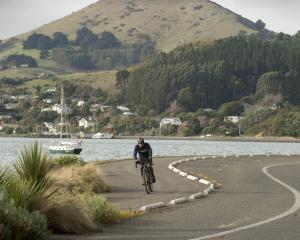One of the key challenges facing New Zealand education in the 21st century is to expand our understanding of a transformed global environment, and provide the analytical tools and critical insights to enhance the effectiveness of New Zealand's security and foreign policies.
Since the late 1980s, the global security context has been profoundly affected by the aftershocks of the end of the Cold War in the late 1980s and the impact of deepening globalisation.
It is the intensification of technologically driven links between societies, institutions, cultures and individuals which has made the world seem a much smaller but, sometimes, more fragmented place.
In the post-Cold War security environment, globalisation has been associated with major trends like the diminished primacy of the Westphalian state-centric structure; the rise of irregular warfare, involving insurgency, warlordism and new forms of terrorism: and the diminished capacity of the world's only superpower, the United States, to fashion international responses to perceived problems.
If 9/11 demonstrated anything, it is that extraordinary economic and military power in the 21st century no longer guarantees invulnerability. This limitation also applies to rising powers like China and India within the international system.
The diffuse process of globalisation has accelerated to the point where the structure of world politics has ceased to be unipolar in nature and is now approaching a post-hegemonic age, an age that is too complex and too connected to be dominated by one state alone.
In many ways, New Zealand has been a major beneficiary of the new global environment. Established New Zealand policies like strong support for the United Nations and UN peacekeeping seemed to be in sync with the multilateral peace operations of the post-Cold War period.
Similarly, New Zealand's non-nuclear stance, which might have looked idealistic in the mid-1980s, took on a more pragmatic hue after the Cold War when global concerns about nuclear proliferation have multiplied.
Meanwhile, 9/11 and the war on terror helped to bring the closest political and military ties between New Zealand and the US since the nuclear row of the mid-1980s. At the same time, New Zealand's continued push into the Asia-Pacific region culminated in a Free Trade Agreement with China, the first agreement of this kind between a Western country and Beijing.
But there are no grounds for complacency. A globalising international environment will prove to be far more demanding in terms of New Zealand's foreign and security policies than either a bipolar or unipolar landscape. For one thing, New Zealand must manage its close relationship with two potential rival powers, China and the US, without alienating one or the other.
In addition, the security implications of continued global warming are expected to loom large in the future, and New Zealand will find itself under domestic and international pressure to take on a greater leadership role.
Moreover, while the SAS and the 140-strong NZDF Provincial Reconstruction Team in Bamiyan have now ended or are ending their roles in Afghanistan, New Zealand's highly regarded armed forces will almost certainly be asked to make a similar contribution to another trouble-spot reasonably soon.
Of course, New Zealand's ability to respond to some of these pressures will be constrained, in part, by the limited financial and military resources of the country.
But New Zealand can and must do better in the provision of an educational experience that reflects both the increasing breadth and complexity of the contemporary global context.
First, there must be recognition that the idea of national security transcends national defence, and increasingly encapsulates the linkage of many different political, economic, environmental and military factors so that developments around the globe can have a direct or indirect impact on the national interests of this country.
Second, and not unrelated, it is important to build closer links between academic specialists in the relevant security and foreign policy areas and government agencies charged with the implementation of policy. At present, quite rigid compartmentalisation between theorists and practitioners often hinders New Zealand's ability to maximise its policy and intellectual resources on crucial international issues. Compared with countries like the US, we are a long way behind in utilising links between the universities and policy-makers.
Third, given that many of the foreign and security problems confronting New Zealand and other countries are by definition multifaceted, there is a need for greater co-ordination between different government agencies, particularly between the Ministry of Foreign Affairs and Trade and the Ministry of Defence.
Fourth, New Zealand television should devote more time and space to international affairs. At present, in the 60-minute evening prime-time news slots on both major New Zealand TV channels, about five minutes is typically devoted to international matters.
Like or dislike it, New Zealand is critically dependent on an increasingly interconnected world. It is about time television news coverage here started reflecting this reality.
Taken together, these steps would not cost a huge amount of money. But they could be the difference between failure and success in the making of New Zealand's foreign and security policies.
After all, sound policy-making is not just about responding to external events. It is also about having the capacity to interpret and anticipate events in the international arena.
• Robert G. Patman is a professor of international relations at the University of Otago.












